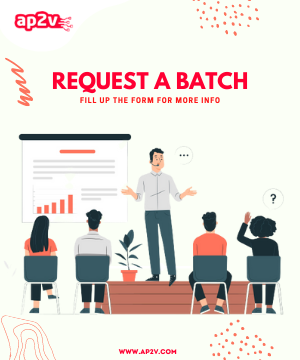AWS vs. Azure vs. GCP Comparing Top Cloud Services for Your Business Needs
Nowadays, cloud computing companies control major organizations, but the top cloud platforms are three: Amazon Web Services (AWS), Microsoft Azure, and Google Cloud Platform (GCP). Three of which are dominated by AWS and it is the first cloud computing platform. Hence, out of these three, organizations face difficulty in choosing which one is suitable. Because all of them have their own features, services, pricing and most importantly which one is easy for the user to use. Analyzing the best cloud platform is one of the most important decisions you can make before making a big move, which means knowing their capabilities and differences before committing to a specific cloud. So, in this blog we bring you the comparison between AWS vs Azure vs GCP for your business.
AWS Cloud Platform
AWS, or Amazon Web Services (AWS) is a cloud services platform operated by Amazon and provides computing, storage, and delivery, among other services, to users.
Working together, each of these Software as a Service (SaaS), Infrastructure as a Service (IaaS), and Platform as a Service (PaaS) offerings is a scalable way to help your organization deploy applications efficiently .
Features of AWS
- Computing
- Storage solutions
- Cloud app integration
- Analytics and machine learning
- Productivity tools
- Developer and management tools
Strengths and Weaknesses of AWS
Strengths
- Assists all primary operating systems also macOS
- Large selection of services
- Continuous growth of service selection
- Maturity and availability
- Efficient in operating number of end users and resources
- Simple startup
Weaknesses
- Comparatively high cost
- Additional fees for essential services
- Additional fees for customer technical support
- Resource caps
- Sharp learning curve after startup
Microsoft Azure
Similar to AWS, Azure is an integrated platform that provides computing, storage, development, and database opportunities in the form of SaaS, IaaS, PaaS. Together, the platforms enable businesses to deploy and manage applications and other services through the cloud.
Features of Azure
- Cloud development platform
- Blockchain technologies
- Predictive analytics
- Comprehensive IoT integration
- DevOps features
Strengths and Weaknesses of Azure
Strengths include:
- Wide availability
- Built-in arrangement with the Microsoft family of software
- Built-in apps that assist various languages (including Java, Python, .NET, and PHP)
- Fairly low on-demand pricing
- Service agreement discount for Microsoft cloud computing users
- High redundancies to reduce downtime
Weaknesses include:
- Lack of data management
- Reports of difficulties regarding network management
- It is not true that it is more challenging to understand than other platforms.
- Designs are unprofessional compared to other platforms
- Reported issues with technical support
Google Cloud Platform (GCP)
Similarly, GCP also provides IaaS and PaaS with a serverless platform that provides computing, storage, databases, multiple networking options, and database and IoT management.
Features of GCP
- Productivity management
- Data storage and management
- Cloud app development
- Artificial intelligence including cloud speech API, vision API, and more
- Business analytics
Strengths and Weaknesses
Strengths include:
- Superior scalability
- Simple setup and configuration
- Use of famous languages such as Java and Python
- Generous sustained-use discounts
- Data load balancing and fast response times
Weaknesses include:
- Lack of advanced features
- Less diversity of features
- Fewer service offerings
- Fewer global data centers
AWS vs Azure vs GCP: Best For Pricing
Pricing can be a big draw for those considering moving to the cloud, and with good reason: Prices have been dropping for some time as the larger providers compete.
AWS Pricing
Amazon's pricing is particularly outrageous. Although it does offer a cost calculator, the many variables involved make it difficult to get an accurate estimate.
Azure Pricing
Microsoft Azure doesn't make things easy. Due to Microsoft's complex software licensing options and use of condition-based discounts, its pricing structure can be difficult to understand without outside help and/or substantial experience.
Google Pricing
Google takes its pricing as a point of contrast. It aims to offer "customer-friendly" prices that beat other providers' list prices.
Conclusion:
Finally, we all know that AWS is the current market leader in terms of cloud positioning and service, but Azure and GCP are also moving fast to compete with AWS. All have their own features and pricing models and none of them is inferior to the other. I hope you have understood the difference between all three of them and this blog will help you in making the choice. Because in the end it is on your decision and budget that which one matches with your choice. Visit our AP2V page for more blogs on these cloud platforms.





